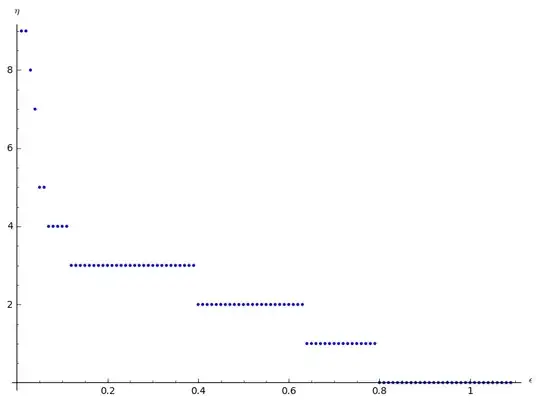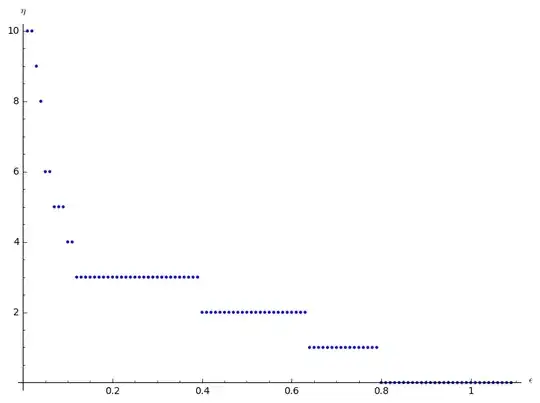Sorry for posting as answer but I think it would be more convenient here.
Firstly, I am offering to change the title of the question to ''There is no $n$ such ... ''. It might be more attractive.
Secondly, I have the following generalized conjecture:
Let $M$ be the set of all $n$ such that
$$H_n - \lfloor{H_n\rfloor} < \frac{1}{n^{1+\epsilon}}.$$
Then
$$\forall\epsilon>0 : |M| = \bar\eta(\epsilon) < \infty.$$
Also I suspect that $\bar\eta$ monotonically decreasing function on $(0,1]$.
Below I presented possible values of $\bar\eta$ ('possible' because I am not able to check all $n$'s). Actually, I was checking only up to $10^5$ first $n$'s. Next, I tried all $n$'s up to $10^6$.
Next, I tried all $n$'s up to $10^6$. Note that I assume $H_n$ starts with $\frac12$, not with 1.
Note that I assume $H_n$ starts with $\frac12$, not with 1.

